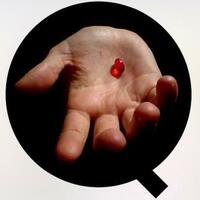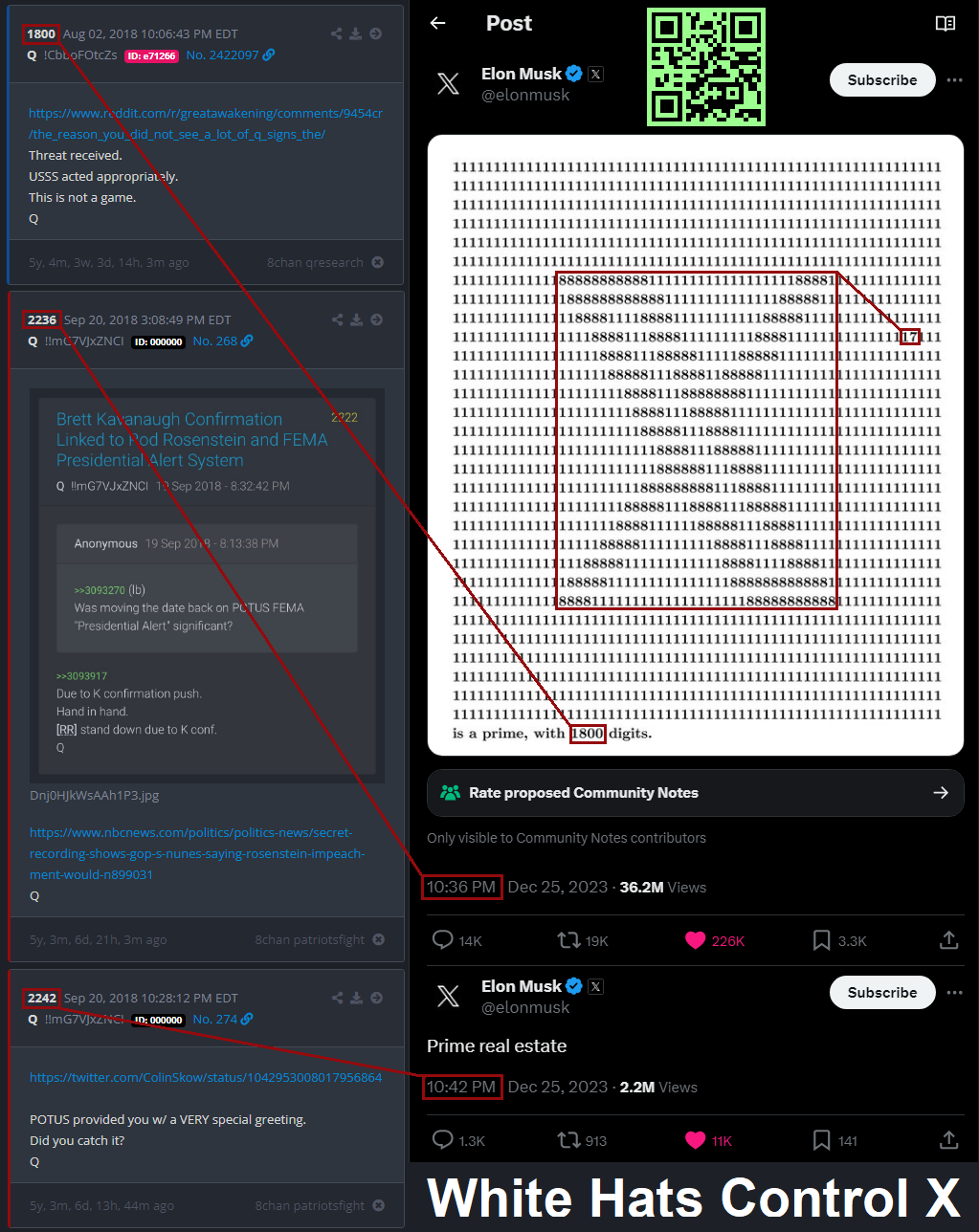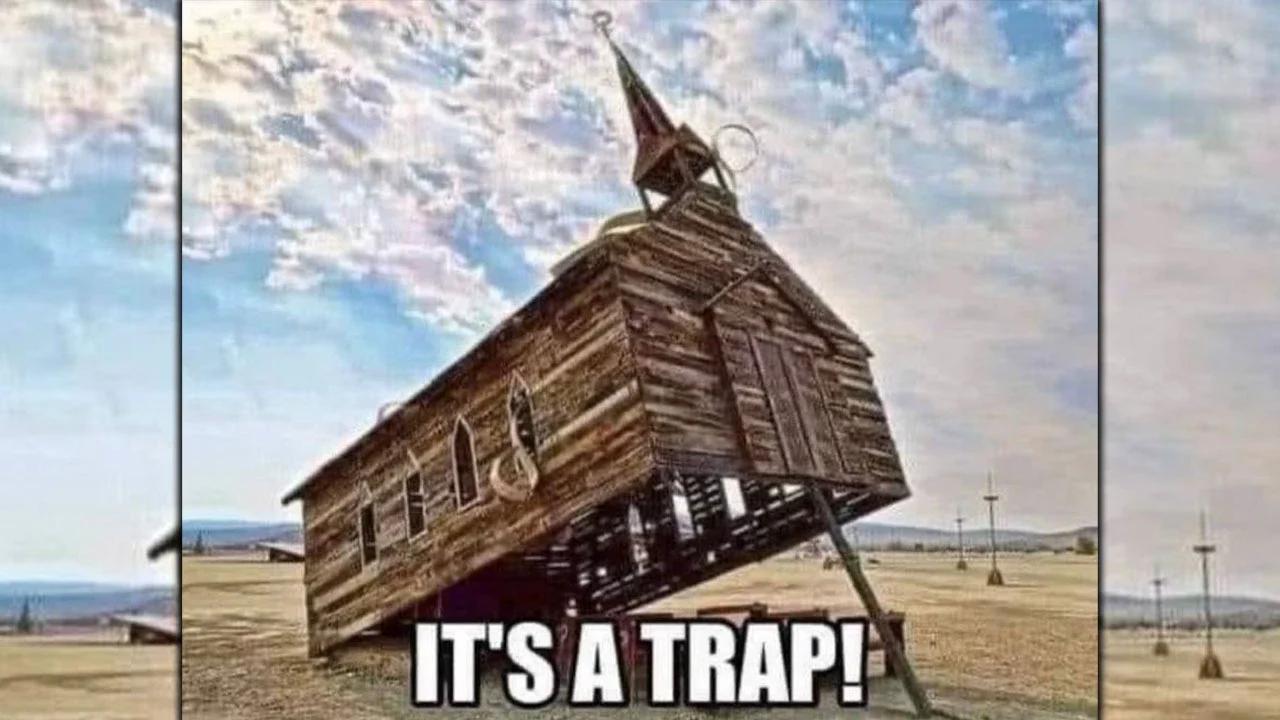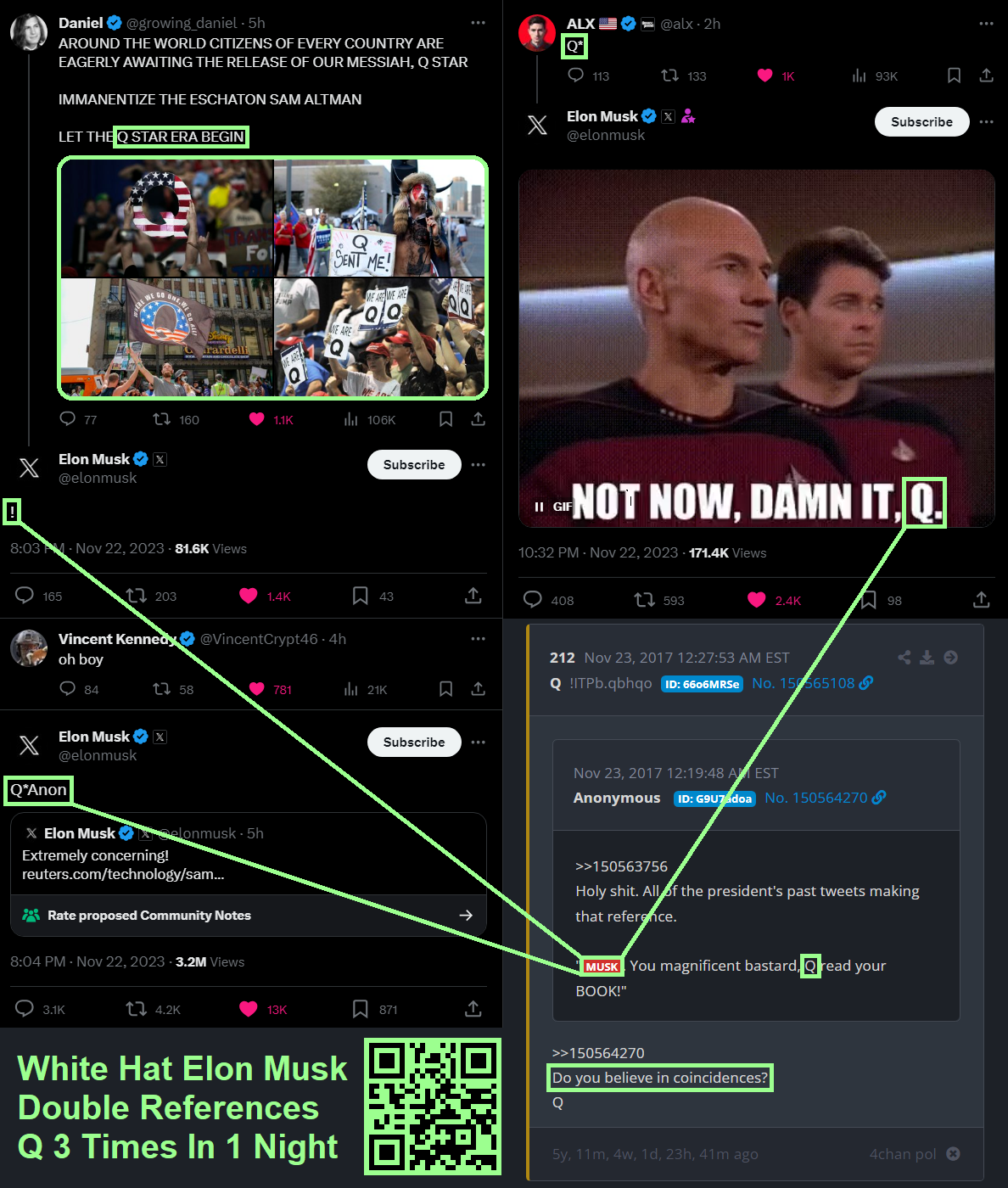Tucker Carlson
@TuckerCarlson
·
16m
They told us Jake Chansley, the QAnon Shaman, was a dangerous lunatic who deserved to be sent to prison, if not shot to death. Many believed it. But is he actually crazy? Judge for yourself.
https://x.com/TuckerCarlson/status/1767670653778354335?s=20
People
Circles
Posts
Qanon Judeo Christian, Netanyahu Sings for Moshiach, Iran War, Hospital Death Squad | Know More News w/ Adam Green
[January 31, 2024]
(1 hour)
https://odysee.com/@KnowMoreNews:1/Q-Judeo-Netanyahu:b
White Hats [17 = Q] Control X
✖️ https://x.com/NotOpCue/status/1740054751486611865?s=20
[Q1800] 6 O'clock Can Be Deadly!
Elon Double Assassination Thwarted?
[Q2236] [EAS/EBS]
Presidential Alert System Soon?
[Q2242]
Prime Real Estate [X] = Main Intel Battlefield
Very Special Message, Did You Catch It?
↙️↙️Read & Share The Full Article↘️↘️
🔍"Q Anon Starter Guide & Deep State Connection Maps"
💊 https://www.humorousmathematics.com/post/are-you-interested-in-learning-about-qanon-use-this-guide-to-get-started
💊 https://giveit.link/OperationQ
Videos
People
Circles
Videos
Posts
Tucker Carlson
@TuckerCarlson
·
16m
They told us Jake Chansley, the QAnon Shaman, was a dangerous lunatic who deserved to be sent to prison, if not shot to death. Many believed it. But is he actually crazy? Judge for yourself.
https://x.com/TuckerCarlson/status/1767670653778354335?s=20
Qanon Judeo Christian, Netanyahu Sings for Moshiach, Iran War, Hospital Death Squad | Know More News w/ Adam Green
[January 31, 2024]
(1 hour)
https://odysee.com/@KnowMoreNews:1/Q-Judeo-Netanyahu:b
White Hats [17 = Q] Control X
✖️ https://x.com/NotOpCue/status/1740054751486611865?s=20
[Q1800] 6 O'clock Can Be Deadly!
Elon Double Assassination Thwarted?
[Q2236] [EAS/EBS]
Presidential Alert System Soon?
[Q2242]
Prime Real Estate [X] = Main Intel Battlefield
Very Special Message, Did You Catch It?
↙️↙️Read & Share The Full Article↘️↘️
🔍"Q Anon Starter Guide & Deep State Connection Maps"
💊 https://www.humorousmathematics.com/post/are-you-interested-in-learning-about-qanon-use-this-guide-to-get-started
💊 https://giveit.link/OperationQ
Judeo Mind Wars & Christian Prophecy Qanon Psyops | Know More News w/ Adam Green
[November 22, 2023]
(2 hours)
https://odysee.com/@KnowMoreNews:1/Wars-Prophecy-Psyops:8
White Hat Elon Musk Double References Q 3 Times In 1 Night On X
✖️ https://x.com/NotOpCue/status/1727584480452280743?s=20
1️⃣ ! On @Growing_Daniel's Q Star Era Post Showing Q Anon Shaman
2️⃣ Q*Anon = [Q Multiplied By Anons]
3️⃣ Not Now, Damn It, Q On @ALX's Q* Post, A Nod To Q Drop 212 Which Implies Musk Q Comms Came A Day Early
↙️↙️Read & Share The Full Article↘️↘️
🔍"Q Anon Starter Guide & Deep State Connection Maps"
💊 https://www.humorousmathematics.com/post/are-you-interested-in-learning-about-qanon-use-this-guide-to-get-started
💊 https://giveit.link/OperationQ








